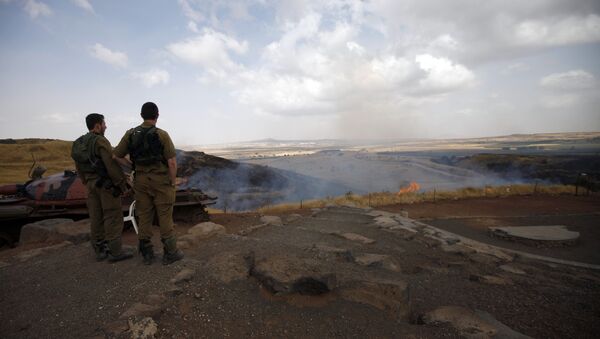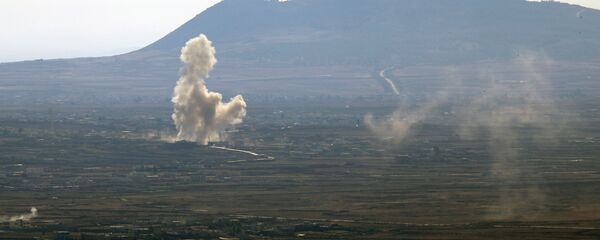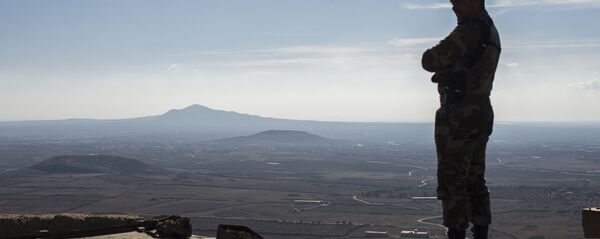The general added that the Israeli air forces have attacked Syrian army positions in support of armed terrorist groups who suffered big losses during their last battle with government troops.
The incident comes shortly after the 48-hour ceasefire, brokered by Russia and the US, was set in Syria.
Commenting to Radio Sputnik on the incident, Efraim Inbar, Israeli professor of Political Studies at Bar-Ilan University and Director of its renowned Begin-Sadat Center for Strategic Studies has ruled out any connection between the developments, saying that he does not think that Israel is involved or is trying to get involved in the civil war in Syria.
"Israel has a clear policy to stay away from the civil war in Syria unless its national interests are directly involved. We once in a while try to intervene, particularly when Israel thinks that sensitive technology is moving to Hezbollah but otherwise Israel stays out of the conflict in Syria," he told Radio Sputnik.
'The Israel Factor' in the Syrian Conflict
In his interview with Canada-based news website The Real News Network, the former politician recalled the words of Prime Minister Benjamin Netanyahu.
"I think what the Israeli leadership is thinking right now is that the longer this war goes on, the safer Israel is, because it can do as Netanyahu has said, for example, in regard to the Golan Heights: they're ours forever; we're never going to give them up," he said.
"And anything else we can grab away from Syria while this turmoil is going on is ours, too, to increase the distance an enemy would have to come to invade Israel."
"And at the same time, all these powers are occupied killing one another, as it were, and so they can't take on Israel. So this is a direct result of what's going on in Syria right now is this feeling of a better security posture for Israel," said the former US Army soldier.
"I think strategically this is dynamite for Israel, that we're looking at the potential for things to start falling apart for Israel quickly and dynamically and dramatically, and for the United States to have some really serious choices to make about this," he added.
"So that's another element we don't like to talk about much in the United States, but it is intrinsic to this situation, and certainly to an ultimate solution to it."
Commenting on the location of the incident, Efraim Inbar acknowledged that in 1981 Israel annexed the Golan Heights and now it is "part of Israel in every sense."
There were attempts at reaching peace deals on the matter with the Syrians before but they were not successful, the political scientist said.
"Nowadays, with the ongoing civil war there is no really strategic address in Damascus or within the whole of the Syrian state where these type of talks could be renewed," he said.





